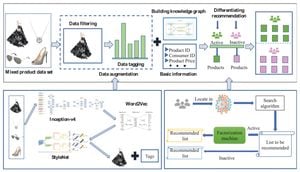Robert Habeck, the leading candidate for Chancellor from the Green Party, has found himself embroiled in allegations of plagiarism connected to his doctoral dissertation, submitted 25 years ago. Just days before the federal elections, Habeck took proactive steps to address the looming accusations, delicately balancing his public image against the backdrop of political tension.
On February 10, 2025, Habeck posted a video on social media platform X (formerly Twitter), where he anticipated forthcoming allegations. He stated, "Ich rechne damit, dass heute, wenige Tage vor der Bundestagswahl, Vorwürfe über meine Doktorarbeit, die ich vor 25 Jahren in Hamburg geschrieben habe, veröffentlicht werden." This early maneuver hints at the importance of safeguarding his reputation as he navigates through what could be politically damaging scrutiny.
The heart of the matter lies with Stefan Weber, the so-called "plagiarism hunter" from Austria, who publicly announced his findings against Habeck's thesis titled "Die Natur der Literatur. Zur gattungstheoretischen Begründung literarischer Ästhetizität." According to Weber, the work is rife with citations and text plagiarisms. More than 128 references are claimed to exhibit serious flaws, which Weber categorized as "systematically failed source work." Within his contentious report, Weber highlighted the thesis's fabrication of literary knowledge and the supposed blending of quoted works without proper attribution.
Habeck, armed with results from the Ombudsman Office of the University of Hamburg, defended himself against Weber's claims. He declared, "Die Ombudsstelle der Universität Hamburg hat die Vorwürfe entkräftet und bestätigt, dass kein wissenschaftliches Fehlverhalten vorliegt," asserting his work's integrity and mitigating Weber's scrutiny. The university confirmed the outcome of its review, asserting, "da weder vorsätzlich noch grob fahrlässig gegen die Standards der guten wissenschaftlichen Praxis verstoßen wurde."
Despite the university's findings, Weber has continued his campaign against Habeck, passionately stating, "Sie schwindeln. Es geht nicht um ‚Ungenauigkeiten in den Fußnoten‘ per se, but rather, you have methodically simulated source work, which did not take place." This contention raises the necessity of assessing Weber's credibility, especially as he has previously targeted other political figures, including referencing damaging allegations against Annalena Baerbock, another prominent Green candidate.
Adding fuel to the fire, Gerald Haug, President of the National Academy of Sciences Leopoldina, stated after reviewing Habeck's dissertation, "Die inkorrekten Literaturangaben verfälschen nicht die zitierten Aussagen." It’s this kind of endorsement from respected academic bodies like Leopoldina which lends some weight to Habeck’s defenses, contrasting Weber's claims.
Interestingly, Weber's methodology has faced criticism for its lack of transparency, raising questions about the motivations behind his investigations. Habeck explicitly addressed this issue, stating, "Ich weiß nicht, wer ihn beauftragt hat und wer ihn bezahlt," demanding to know who finances Weber's inquiries and their underlying motivations. The potential for political maneuvering adds to the complexity of this situation.
Reacting to the broader narrative, Andreas Audretsch, Habeck's campaign manager, has labeled the situation as part of a "Desinformationskampagne," equipping the narrative with elements of external interference, particularly pointing to possible connections with Russian actors seeking to undermine credibility within German politics. Audretsch’s assertion reiterates the political stakes at play, stressing the need to discern truth from disinformation.
Habeck concluded his defense with an earnest request to exclude his family from this political fray, "Ich bitte also darum, meine Familie rauszuhalten," as accusations against his wife’s academic work circulated. This plea illuminates the intense pressures political figures face, particularly during sensitive election periods.
While the allegations do warrant serious consideration, Habeck’s efforts to be forthcoming and transparent could sway public sentiment, particularly if he manages to successfully disassociate another potentially politically motivated smear campaign from his professional integrity. That said, the road to Election Day may continue to be marred by these accusations, and the electorate will likely remain vigilant about how transparency and integrity may sway their choices this coming ballot.



